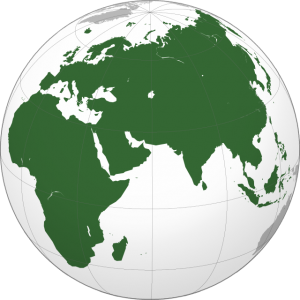Eurasian Epistemologies
Research Network (Branch of IHSS Research Programme: Gobal Epistemologies)
Taking Stock of New Cultural, Medical, Political, and Social Knowledges

The Eurasian Epistemologies Group forms a branch of the IHSS Research Programme on Global Epistemologies. Following the full-scale invasion of Ukraine, in February 2022, CEREES seeks to expand on established understandings of the politics, people, and culture of the Russian Empire/Soviet Union, focusing on Eurasian epistemologies (the various forms of local, imperial, and global knowledges), as well as the transnational connections and exchanges that help shape this region and the wider world.
This Research Programme seeks to take stock of various forms of local knowledge around the world in a range of domains (cultural heritage, healing, environment, etc.). The programme will pursue this through:
1) a funding call (open to Queen Mary University of London staff and PhD Students to carry out own research),
2) a series of conversations (exploring indigenous and non-anthropomorphic forms of knowledge and decolonising global cultural heritage),
3) developing large-scale research grants (“Local Experiences of Early Cinema in the British Colonies” and “Colonialism in Highschool Education around the World”).
The programme is headed by Dr Mario Slugan.
CEREES Participants
Mario Slugan
Andy Willimott
Natalya Chernyshova
Jeremy Hicks
Maria Chehonadskih
IHSS Global Epitemologies — Learn More here
Events — Global Epistemologies Talks Series
IHSS Global Epistemologies — Three general topics are explored:
1) indigenous knowledge:
- indigenous knowledge as a source of Enlightenment (especially debates stemming from recent work of Graeber and Wengrow),
- traditional knowledge and medicine & botany (especially psychoactive substances),
- epistemic evaluation of indigenous knowledge (potential for evaluative epistemological meta-systems).
2) decolonising global cultural heritage:
- decolonising art collections (especially the British Museum),
- archaeology, ancient DNA & ancient burial sites (especially questions of respecting final resting places),
- decolonising the film archive and global film heritage (especially British Film Institute).
3) non-anthropomorphic forms of knowledge:
- animal forms of knowledge (especially species who learn),
- AI and machine learning (especially learning based on human prejudices),
- flat ontologies which do not privilege epistemic subjects (especially object-oriented ontologies).
These events are live discussions between two experts (a global expert and an expert from QMUL) with Dr Slugan as moderator. If you have an idea about a potential topic and/or would like to participate in some form, please contact Dr Slugan (m.slugan@qmul.ac.uk).

Shape the Conversation
To join our mailing list, participate in our programme of events, or find out how we can support your research, please contact hss-cerees@qmul.ac.uk